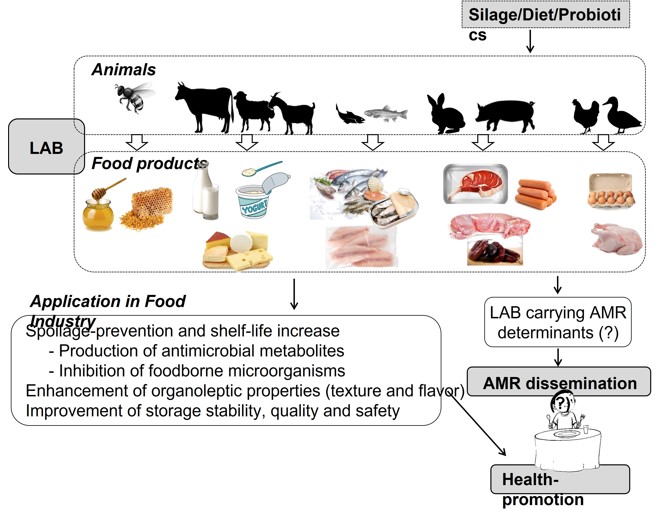Animal products, in particular dairy and fermented products, are natural, major sources of lactic acid bacteria (LAB). Due to their antimicrobial properties, LAB are used in humans and in animals, with beneficial effects, as probiotics or in the treatment of a variety of diseases. In livestock production, LAB contribute to animal performance, health, and productivity. In the food industry, LAB are applied as bioprotective and biopreservation agents, contributing to improve food safety and quality. However, some studies have described resistance to relevant antibiotics in LAB, with the concomitant risks associated to the transfer of antibiotic resistance genes to foodborne pathogens, their potential dissemination throughout the food chain, and the environment. Here, we summarize the application of LAB in livestock and animal products, as well as the health impact of LAB in animal food products. In general, the beneficial effects of LAB on the human food chain seem to outweigh the potential risks associated with their consumption as part of animal and human diets. However, further studies and continuous monitorization efforts are needed to ensure their safe application in animal products and in the control of pathogenic microorganisms, preventing the possible risks associated with antibiotic resistance and, thus, protecting public health.

